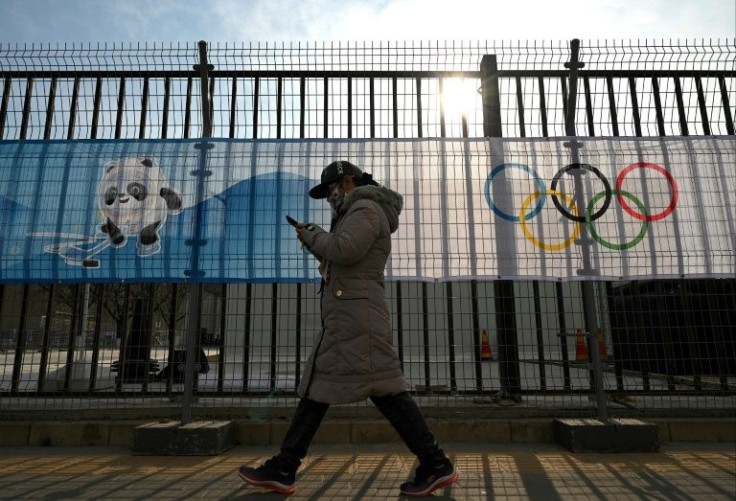Beijing’s First Omicron Case Likely Came With Mail From Canada, Experts Say
KEY POINTS
- The first locally transmitted omicron case in Beijing may have contracted the virus from contaminated mail shipped from Canada
- Tests on the letter, which passed through the U.S. and Hong Kong, revealed that omicron was present on it, officials said
- There has been no evidence to suggest transmission via imported items, experts say
Chinese health officials have not ruled out mail shipped from Canada as the cause of Beijing's first locally transmitted case of the coronavirus' omicron variant.
The capital city's first omicron case — an unnamed 26-year-old woman — tested positive for the COVID-19 variant Saturday, which prompted authorities to place snap lockdowns on her office building and residential compound.
While the woman had not traveled outside Beijing in the 14 days leading up to the appearance of her symptoms, she did receive a letter that was mailed from Canada prior to testing positive, Pang Xinghuo, the deputy director of the Beijing Municipal Center for Disease Prevention and Control, was cited as saying by the South China Morning Post.
Tests on the letter, which was investigated after authorities discovered that the infected woman occasionally received overseas mail, revealed that the item had omicron present on it, according to the outlet.
"We do not rule out the possibility that the person was infected through contacting an object from overseas," Pang said Monday.
Chinese authorities have repeatedly claimed that the coronavirus has been found on contaminated imports, but the U.S. Centers for Disease Control and Prevention said the risk of fomite — or surface — transmission was "low" compared to direct contact, droplet transmission or airborne transmission.
"You would have to have virus on an object, it would have to survive through all of that transport and all of those circumstances. It would be highly unlikely that that could ever transmit COVID-19," Dr. Supriya Sharma, chief medical advisor at Health Canada, was quoted as saying by CTV News.
The doctor, who said that China's allegations were "highly improbable," noted that the experience "throughout the world" showed "that the main mode of transmission really is through the air as opposed to a transfer from inanimate surfaces."
Public Health Agency of Canada (PHAC), for its part, also stated that there has been no evidence to suggest transmission via imported items, according to a report by the National Post.
"In general, because of poor survivability of coronaviruses on surfaces, there is a low risk of spread from products or packaging shipped over a period of days or weeks. Currently, there is no evidence of COVID-19 being transmitted by imported goods or packages," Canada Post explained on its website, citing PHAC as well as the World Health Organization.
The letter the woman received was reportedly sent on Jan. 7 and traveled via the U.S. as well as Hong Kong before arriving in China on Jan. 11.
All employees who handled the mail, which was sanitized by an express courier before being delivered to Beijing's Zhongguancun area, have been quarantined. Eight people who may have been in contact with the letter have tested negative.
However, traces of omicron were found on five other pieces of mail among 54 that were sent from the same place to a different address in China, authorities claimed.
One positive sample was taken from the outside of one package, while four pieces of contaminated paper were found inside mail that had not been opened before being checked.
Beijing is on high alert to keep COVID-19 from surging as the capital prepares to host the Winter Olympics in early February, as per the South China Morning Post.
City officials have urged people to stop ordering items delivered from overseas following the first reported omicron case.
China has reported more than 105,000 COVID-19 cases and a total of 4,636 virus-related deaths since the start of the pandemic.

© Copyright IBTimes 2025. All rights reserved.





















